The Complete Guide to Lion's Mane Mushroom for Everyone, Including Athletes

Table of Contents
- Key Takeaways
- About Lion's Mane
- What Makes Lion's Mane So Special?
- Lion's Mane Benefits
- Special Benefits for Athletes
- Lion's Mane Research
- How to Use Lion's Mane
- What Are the Side Effects of Lion's Mane?
- Severe Side Effects
- Lion's Mane Safety
- Dosage: How Much Lion's Mane Should I Take?
- Frequently Asked Questions
Key Takeaways
Lion's Mane mushroom offers a plethora of health benefits, from boosting cognitive function to supporting a healthy nervous system. It is especially beneficial for athletes due to its fatigue-reducing and focus-enhancing properties. Here's everything you need to know.
About Lion's Mane
Lion's Mane, scientifically known as Hericium erinaceus, is a mushroom traditionally used in Eastern medicine. Its unique ability to enhance cognitive functions has made it increasingly popular in the West. The Lion's Mane mushroom owes its name to its extraordinary shape, which is roundish-oval or even heart-shaped, and its outer side is covered with many densely packed, long spikes. In China, it's also referred to as the "Monkey Head Mushroom" due to its unique appearance. Lion's Mane is rich in potassium, zinc, iron, germanium, selenium, phosphorus, and contains all essential amino acids as well as polysaccharides and polypeptides.
The Lion's Mane mushroom, also known by names such as Yamabushitake, Hedgehog Mushroom, is used in Asian countries like China, India, Japan, and Korea for both culinary and medicinal purposes. Lion's Mane can be enjoyed raw, cooked, dried, or as tea. Extracts of the mushroom are also found in dietary supplements. The taste of this mushroom is often described by many as reminiscent of seafood like crab or lobster. The Lion's Mane mushroom contains a variety of bioactive compounds that have positive effects on the body, particularly the brain, heart, and digestive tract. Due to these effects, the Lion's Mane mushroom is gaining increasing popularity in the fields of health and athletic performance enhancement.
What Makes Lion's Mane So Special?
The Lion's Mane mushroom contains large amounts of Beta-Glucan Polysaccharides, a type of naturally occurring glucose polymer found in the cell walls of certain fungi and bacteria. It is also rich in lectins, proteins, lipids, hericenon, erinacin, and terpenoids. These compounds are responsible for many of its health benefits, such as reduced fatigue, reduction of inflammation, improved digestive health, improved cognitive function, and enhanced immune system function.
Lion's Mane Benefits
Lion's Mane mushroom is renowned for its neuroprotective effects, ability to stimulate nerve growth, and to help with cognitive functions such as memory and focus.
Special Benefits for Athletes
Reduction of Fatigue and Increase in Energy
Lion's Mane can reduce physical fatigue, an adversary every athlete continuously battles against. Scientific studies have shown that it can promote fatigue-reducing activity and enhance athletic performance.
Enhancement of Cognitive Functions
Mental sharpness is crucial for athletes. Lion's Mane can improve focus, concentration, and overall cognitive function, making it an effective "brain food."
Anti-Inflammatory and Antioxidant Properties
Lion's Mane contains potent anti-inflammatory and antioxidant compounds that can reduce inflammation and oxidative stress, thereby shortening recovery time post-training.
Improved Gastrointestinal Health
Lion's Mane has natural antibacterial properties that protect against harmful bacteria like H. Pylori, the leading cause of stomach ulcers.
Enhanced Immune System Function
A strong immune system is vital for athletes. Lion's Mane has been shown to enhance the immune system by increasing the activity of the intestinal immune system.
Lion's Mane Research
Lion's Mane can reduce fatigue and boost muscle energy
Physical fatigue is an opponent that every athlete continuously battles. Rapid recovery after training or any other form of athletic activity is crucial for every athlete. Scientific studies have shown that Lion's Mane mushroom can reduce physical fatigue. In a study conducted on mice, markers of physical exhaustion such as blood lactate levels, serum urea nitrogen, and malondialdehyde levels were lower in the group of mice that were administered Lion's Mane. This study demonstrated that Lion's Mane could promote fatigue-reducing activity and enhance athletic performance. The same study also showed that Lion's Mane could increase tissue glycogen levels, energy storage in muscles, and antioxidant activity.
What does all this mean for the athlete?
Well, Lion's Mane seems not only to reduce fatigue but also has the potential to boost muscle energy.
Lion's Mane can enhance focus and concentration
Mental sharpness is just as important for athletes as physical performance. Improving focus and concentration can significantly boost athletic performance. Lion's Mane has been shown to improve cognitive function, particularly focus, concentration, and memory performance. Some experts even consider Lion's Mane to be the most effective "brain food" as it stimulates the production of the natural growth factor NGF. NGF is a protein crucial for the development, function, and survival of neurons in the brain.
Other neurological benefits associated with the compounds found in Lion's Mane include reduced irritability, enhanced neuron growth, better regeneration of damaged nerves, and overall improvement in cognitive function.
Lion's Mane can reduce inflammation and oxidative stress and shorten recovery time. Chronic inflammation and oxidative stress are considered causes of many modern diseases, including heart disease, cancer, and autoimmune diseases. Scientific studies show that Lion's Mane contains potent anti-inflammatory and antioxidant compounds that could help mitigate the effects of these diseases (Composition and antioxidant activity of water-soluble oligosaccharides from Hericium erinaceus).
One study that examined the antioxidant effects of 14 different mushroom species found that Lion's Mane had the fourth-highest antioxidant activity. The authors of the study therefore recommended Lion's Mane as a good food source for antioxidants (Evaluation of Selected Culinary-Medicinal Mushrooms for Antioxidant and ACE Inhibitory Activities). Several animal studies found that Lion's Mane extracts reduced markers of inflammation and oxidative stress and could be particularly helpful in controlling inflammatory bowel diseases, liver damage, and stroke (Anti-Inflammatory Effects of Ethanol Extract of Lion's Mane Medicinal Mushroom, Hericium erinaceus (Agaricomycetes), in Mice with Ulcerative Colitis, Evaluation of in vivo antioxidant activity of Hericium erinaceus polysaccharides, Protective Effect of Hericium erinaceus on Alcohol Induced Hepatotoxicity in Mice). Lion's Mane could also help reduce some of the health risks associated with obesity and overweight, as it has been shown to reduce the amounts of pro-inflammatory compounds released by fat tissue (The Anti-Inflammatory Effects of Lion's Mane Culinary-Medicinal Mushroom, Hericium erinaceus (Higher Basidiomycetes) in a Coculture System of 3T3-L1 Adipocytes and RAW264 Macrophages).
Physical exhaustion can also induce inflammation and increase oxidative stress, leading to muscle tissue damage and impaired muscle contractility. Studies have shown that dietary antioxidant manipulation can accelerate post-exercise recovery by both reducing muscle fatigue and lowering the levels of reactive oxygen species that are harmful to the body. Lion's Mane is rich in anti-inflammatory and antioxidant compounds and can thus reduce reactive oxygen species and the time needed for muscle recovery. Studies have also shown that Lion's Mane contains natural ACE inhibitors, which relax blood vessels, increase blood flow, and reduce the strain on the heart.
Other neurological benefits
Associated with the compounds contained in Lion's Mane include reduced irritability, improved neuron growth, better regeneration of damaged nerves, and an overall enhancement of cognitive function.
Lion's Mane can reduce inflammation and oxidative stress and shorten recovery time
Chronic inflammation and oxidative stress are considered causes of many modern diseases, including heart disease, cancer, and autoimmune diseases. Scientific studies show that Lion's Mane contains potent anti-inflammatory and antioxidant compounds that could help reduce the effects of these diseases.
A study examining the antioxidant effects of 14 different mushroom species found that Lion's Mane exhibited the fourth-highest antioxidant activity. The study's authors, therefore, recommended Lion's Mane as a good food source for antioxidants. Several animal studies found that Lion's Mane extracts reduced markers of inflammation and oxidative stress and could be particularly helpful in controlling inflammatory bowel diseases, liver damage, and stroke.
Lion's Mane may also help reduce some of the health risks associated with obesity and overweight
As it has been shown to reduce the amounts of pro-inflammatory compounds released from adipose tissue.
Physical fatigue can also induce inflammation and increase oxidative stress
Leading to muscle tissue damage and impaired muscle contractility. Studies have shown that dietary antioxidant manipulation can accelerate recovery after training by both reducing muscle fatigue and reducing the amounts of reactive oxygen species that are harmful to the body. Lion's Mane is rich in anti-inflammatory and antioxidant compounds and can thus reduce reactive oxygen species and the time needed for muscle recovery. Studies have also shown that Lion's Mane contains natural ACE inhibitors, which relax blood vessels, increase blood flow, and reduce heart strain.
Lion's Mane can improve fat metabolism
The two primary energy sources for metabolism are carbohydrates and fats. While the body's carbohydrate stores are limited, this is not the case for fat stores. For athletes, the ability to metabolize fat as an energy source is ideal for longer-lasting training efforts to improve endurance. Scientific studies have shown that Lion's Mane extracts can improve fat metabolism, which could be beneficial for endurance athletes. Another study found that administering a Lion's Mane extract to mice, despite a high-fat diet, led to increased fat metabolism and reduced weight gain. These results suggest that Lion's Mane could potentially improve fat metabolism in endurance athletes.
Lion's Mane can improve gastrointestinal health and protect against ulcers in the digestive tract
Lion's Mane has natural antibacterial properties that have been shown to protect against harmful bacteria like H. Pylori—the leading cause of stomach ulcers. There is also evidence that Lion's Mane can protect the stomach lining from other harmful substances. Stomach ulcers are often caused by two main factors: excessive growth of H. Pylori bacteria and damage to the stomach lining, often attributed to long-term use of nonsteroidal anti-inflammatory drugs (A multicenter prospective study on the prevalence of Helicobacter pylori-negative and nonsteroidal anti-inflammatory drugs-negative idiopathic peptic ulcers in Japan). Lion's Mane extracts could protect against stomach ulcers by inhibiting the growth of H. Pylori bacteria and protecting the stomach lining from damage (Medicinal properties of Hericium erinaceus and its potential to formulate novel mushroom-based pharmaceuticals, Anti-Gastric Ulcer Activity of Polysaccharide Fraction Isolated from Mycelium Culture of Lion's Mane Medicinal Mushroom, Hericium erinaceus (Higher Basidiomycetes)). Several studies have shown that Lion's Mane can inhibit the growth of H. Pylori in a test tube, but there are no studies yet conducted on living subjects (Anti-Helicobacter pylori activity of bioactive components isolated from Hericium erinaceus, In vitro anti-Helicobacter pylori effects of medicinal mushroom extracts, with special emphasis on the Lion's Mane mushroom, Hericium erinaceus (higher Basidiomycetes)). However, an animal study found that a Lion's Mane extract was more effective than traditional antacids in preventing alcohol-induced stomach ulcers, with Lion's Mane showing no undesirable side effects (Gastroprotective Effects of Lion's Mane Mushroom Hericium erinaceus (Bull.:Fr.) Pers. (Aphyllophoromycetideae) Extract against Ethanol-Induced Ulcer in Rats).
Ulcers can also develop not just in the stomach but throughout the digestive tract, including the colon and small intestine. Lion's Mane can also reduce inflammation and prevent tissue damage in other areas of the digestive tract. Lion's Mane may even help treat inflammatory bowel diseases like ulcerative colitis and Crohn's disease (Anti-Inflammatory Effects of Ethanol Extract of Lion's Mane Medicinal Mushroom, Hericium erinaceus (Agaricomycetes), in Mice with Ulcerative Colitis, Extracts from Hericium erinaceus relieve inflammatory bowel disease by regulating immunity and gut microbiota, Polysaccharide of Hericium erinaceus attenuates colitis in C57BL/6 mice via regulation of oxidative stress, inflammation-related signaling pathways and modulating the composition of the gut microbiota). A study involving ulcerative colitis patients found that taking a Lion's Mane supplement containing 14% Lion's Mane extract significantly reduced symptoms and improved quality of life after 3 weeks (Effect of a Medicinal Agaricus blazei Murill-Based Mushroom Extract, AndoSan™, on Symptoms, Fatigue and Quality of Life in Patients with Ulcerative Colitis in a Randomized Single-Blinded Placebo Controlled Study). However, when the same study was repeated with Crohn's disease patients, the benefits were not greater than a placebo. It's important to note that the herbal supplements used in these studies contained multiple types of fungi, making it difficult to draw conclusions about the specific effects of Lion's Mane. All in all, scientific research suggests that Lion's Mane extracts could help prevent the development of ulcers, although further human studies are needed.
Lion's Mane Boosts Immune System Function
A strong immune system protects the body from bacteria, viruses, and other disease-causing pathogens. On the other hand, a weak immune system increases the risk of infectious diseases. For athletes, it may be interesting to note that a strong immune system supports the body's regeneration. For athletes who regularly push their bodies to the limit, a healthy immune system is essential for protecting the body from all types of pathogens. There are numerous scientific studies suggesting that Lion's Mane can improve immune system function. Several studies suggest that Lion's Mane boosts the activity of the immune system, thereby protecting the body from pathogens that enter the digestive tract through the mouth or nose. These effects may be at least partially related to beneficial changes in gut bacteria, which stimulate the immune system (Immunomodulatory Activities of a Fungal Protein Extracted from Hericium erinaceus through Regulating the Gut Microbiota). In addition, another study showed that mushroom proteins contained in Lion's Mane improve immune system function and can be used as so-called "functional food" for immunotherapy. One study even found that daily supplementation with a Lion's Mane extract could quadruple the lifespan of mice that were injected with a lethal dose of salmonella (Hericium erinaceus mushroom extracts protect infected mice against Salmonella Typhimurium-Induced liver damage and mortality by stimulation of innate immune cells). Although further research is needed, the immune-boosting effects of Lion's Mane are very promising.
Lion's Mane May Protect Against Dementia
The brain's ability to grow and form new connections between neurons decreases with age, which could explain why mental function declines in many older adults (Neural plasticity in the ageing brain). Studies have found that Lion's Mane contains two specific compounds that can stimulate the growth of brain cells: Hericenones and Erinacines (Neurotrophic properties of the Lion's mane medicinal mushroom, Hericium erinaceus (Higher Basidiomycetes) from Malaysia). In addition to this, animal studies have shown that Lion's Mane could help protect against Alzheimer's—a degenerative brain disease that causes progressive memory loss. It has been demonstrated that Lion's Mane and its extracts can reduce symptoms of memory loss in mice, as well as prevent the formation of Amyloid-Beta plaques, which accumulate in the brain during Alzheimer's disease and cause neuronal damage (Effects of Hericium erinaceus on amyloid β(25-35) peptide-induced learning and memory deficits in mice, Erinacine A-enriched Hericium erinaceus mycelium ameliorates Alzheimer's disease-related pathologies in APPswe/PS1dE9 transgenic mice). While there are no human studies yet that have directly examined the benefits of Lion's Mane for Alzheimer's, there is evidence to suggest that Lion's Mane can improve mental function. A study involving older adults suffering from mild cognitive impairment found that daily consumption of 3 grams of Lion's Mane powder over a period of 4 months significantly improved mental function, although these benefits disappeared once supplementation was discontinued (Improving effects of the mushroom Yamabushitake (Hericium erinaceus) on mild cognitive impairment: a double-blind placebo-controlled clinical trial). Lion's Mane's ability to promote nerve growth and protect the brain from Alzheimer's-related damage could explain some of its positive effects on brain health.
Lion's Mane May Help Alleviate Mild Symptoms of Depression and Anxiety
Up to one-third of the population in Western countries suffers from symptoms of anxiety and depression (A meta-meta-analysis of the effect of physical activity on depression and anxiety in non-clinical adult populations). While there are many causes for anxiety disorders and depression, chronic inflammation could be a significant contributing factor. New animal studies have found that Lion's Mane extracts have anti-inflammatory effects that could alleviate symptoms of anxiety and depression in mice (Effects of amycenone on serum levels of tumor necrosis factor-α, interleukin-10, and depression-like behavior in mice after lipopolysaccharide administration, Erinacine A-Enriched Hericium erinaceus Mycelium Produces Antidepressant-Like Effects through Modulating BDNF/PI3K/Akt/GSK-3β Signaling in Mice). Other animal studies have found that Lion's Mane extracts can also help regenerate brain cells and improve the function of the hippocampus—a region of the brain responsible for processing memories and emotional responses (Hericium erinaceus Extract Reduces Anxiety and Depressive Behaviors by Promoting Hippocampal Neurogenesis in the Adult Mouse Brain). Scientists believe that enhanced hippocampal function could explain the reduction in anxiety and depression observed in mice that received Lion's Mane extracts. A study conducted with menopausal women also showed that daily consumption of cookies containing Lion's Mane extract over a one-month period helped reduce feelings of irritability and anxiety (Reduction of depression and anxiety by 4 weeks Hericium erinaceus intake).
Lion's Mane could accelerate healing after injuries to the nervous system. The nervous system consists of the brain, spinal cord, and other nerves that run throughout the body. These three components work together and transmit signals that control nearly every bodily function. Injuries to the brain or spinal cord can have devastating consequences. They often cause paralysis or loss of mental function, and their healing can take a very long time. However, scientific studies have found that Lion's Mane extracts can accelerate healing in these types of injuries by speeding up the growth and repair of nerve cells (Lion's Mane, Hericium erinaceus and Tiger Milk, Lignosus rhinocerotis (Higher Basidiomycetes) Medicinal Mushrooms Stimulate Neurite Outgrowth in Dissociated Cells of Brain, Spinal Cord, and Retina: An In Vitro Study, The influence of Hericium erinaceus extract on myelination process in vitro). It has been shown that a Lion's Mane extract could reduce the time needed for healing in rats with nervous system injuries by 23 to 41% (Peripheral Nerve Regeneration Following Crush Injury to Rat Peroneal Nerve by Aqueous Extract of Medicinal Mushroom Hericium erinaceus (Bull.: Fr) Pers. (Aphyllophoromycetideae)). Lion's Mane extracts could also help reduce the severity of damage following a stroke. In one study, a Lion's Mane extract administered to rats immediately after a stroke helped reduce inflammation and decrease the extent of brain damage caused by the stroke (Protective effects of Hericium erinaceus mycelium and its isolated erinacine A against ischemia-injury-induced neuronal cell death via the inhibition of iNOS/p38 MAPK and nitrotyrosine).
Lion's Mane May Reduce the Risk of Heart Disease
Primary risk factors for heart disease include obesity, high triglyceride levels, large amounts of oxidized cholesterol, and an increased tendency for blood clot formation. Scientific research shows that Lion's Mane can influence some of these factors and reduce the risk of heart disease. Studies involving rats and mice have found that Lion's Mane extracts can improve fat metabolism and reduce triglyceride levels. In one study, rats were given a high-fat diet along with a daily dose of Lion's Mane extract. These rats showed a 27% reduction in triglyceride levels and a 42% decrease in weight gain after 28 days (Yamabushitake mushroom (Hericium erinaceus) improved lipid metabolism in mice fed a high-fat diet). Since both obesity and high triglyceride levels are considered risk factors for heart disease, this is one way Lion's Mane can contribute to heart health. In vitro studies have also found that Lion's Mane extract can help reduce the oxidation of cholesterol in the bloodstream (Inhibitory effect on in vitro LDL oxidation and HMG Co-A reductase activity of the liquid-liquid partitioned fractions of Hericium erinaceus (Bull.) Persoon (lion's mane mushroom)). Oxidized cholesterol molecules tend to adhere to arterial walls, increasing the risk of heart attack and stroke. Therefore, reducing this oxidation is beneficial for heart health. Furthermore, Lion's Mane contains a compound called Hericenon B, which can reduce the rate of blood clotting and decrease the risk of heart attack and stroke (Inhibitory effect of hericenone B from Hericium erinaceus on collagen-induced platelet aggregation). In summary, Lion's Mane appears to have multiple positive effects on heart and vascular health through various pathways.
Lion's Mane May Help Control Diabetes Symptoms
Diabetes is a disease that occurs when the body loses the ability to control its blood sugar levels, resulting in consistently elevated levels. Chronically high blood sugar levels ultimately lead to complications such as kidney disease, nerve damage in hands and feet, and loss of vision. Lion's Mane could be useful for managing diabetes, as this mushroom may improve blood sugar control and reduce some of the side effects of diabetes. Several animal studies have shown that Lion's Mane can significantly reduce blood sugar levels in both healthy and diabetic mice, even at doses as low as 6 mg per kilogram of body weight (Structures, biological activities, and industrial applications of the polysaccharides from Hericium erinaceus (Lion's Mane) mushroom: A review). One way Lion's Mane could lower blood sugar levels is by inhibiting the activity of the enzyme Alpha-Glucosidase, which breaks down carbohydrates in the small intestine (Antidiabetic and antioxidant activities of eight medicinal mushroom species from China). When this enzyme is blocked, the body is unable to effectively digest carbohydrates, resulting in lower blood sugar levels. In addition to reducing blood sugar levels, Lion's Mane extracts could also alleviate diabetic nerve pain in hands and feet. In mice with diabetic nerve damage, a six-week treatment with a Lion's Mane extract resulted in reduced pain, lower blood sugar levels, and increased antioxidant levels.
Lion's Mane May Have Anti-Cancer Properties
Cancer occurs when the DNA of cells is damaged, leading to uncontrolled cell division and growth. Some research suggests that Lion's Mane could have cancer-fighting properties due to some of its unique compounds (A new cerebroside from the fruiting bodies of Hericium erinaceus and its applicability to cancer treatment). When a Lion's Mane extract is added to human cancer cells in a test tube, it results in a faster rate of cancer cell death. This has been demonstrated with various types of cancer cells, including liver cancer cells, colorectal cancer cells, stomach cancer cells, and blood cancer cells (Mechanism of Hericium erinaceus (Yamabushitake) mushroom-induced apoptosis of U937 human monocytic leukemia cells, Anticancer potential of Hericium erinaceus extracts against human gastrointestinal cancers, Isolation and identification of aromatic compounds in Lion's Mane Mushroom and their anticancer activities). However, at least one study observed no such effects, indicating that further research is needed (Selective induction of apoptosis in murine skin carcinoma cells (CH72) by an ethanol extract of Lentinula edodes). Additionally, it has been observed that Lion's Mane extracts are capable of slowing down the spread of cancer. One study with mice suffering from colorectal cancer found that taking a Lion's Mane extract reduced the spread of cancer to the lungs by 69% (Hericium erinaceus (Lion's Mane) mushroom extracts inhibit metastasis of cancer cells to the lung in CT-26 colon cancer-tansplanted mice). Another study found that a Lion's Mane extract was more effective than traditional cancer drugs in slowing down tumor growth in mice, and with fewer side effects (Anticancer potential of Hericium erinaceus extracts against human gastrointestinal cancers).
It should be noted that these are preliminary results, meaning that Lion's Mane should not be considered a substitute for conventional cancer therapy.
How to Use Lion's Mane
You can consume Lion's Mane in various forms such as whole mushroom, extracts, and supplements. For a range of Lion's Mane products, visit GreenHatShop.
What Are the Side Effects of Lion's Mane?
While generally considered safe, some individuals might experience mild side effects such as an upset stomach.
Severe Side Effects
Severe side effects are rare but can include allergic reactions in people who are allergic to mushrooms.
Lion's Mane Safety
Always consult your healthcare provider before starting any new supplement regimen if you are pregnant, nursing, or on medication.
Dosage: How Much Lion's Mane Should I Take?
The recommended dosage varies depending on the form in which you are taking it. Consult the guidelines for accurate dosage information.
Frequently Asked Questions
-
Is Lion's Mane safe to consume daily?
While Lion's Mane is generally considered safe for most people, it's always best to consult your healthcare provider for personalized advice, especially if you are pregnant, nursing, or on medication.
-
Can I cook Lion's Mane like other mushrooms?
Yes, Lion's Mane is a culinary mushroom and can be cooked. It has a seafood-like texture and flavor, often compared to lobster or crab.
-
Does Lion's Mane interact with other medications?
There is limited research on the interactions between Lion's Mane and other medications. If you are taking any medications, consult your healthcare provider before adding Lion's Mane to your regimen.
-
How long does it take to feel the effects of Lion's Mane?
The time it takes to feel the effects can vary from person to person and depends on various factors such as dosage and individual body chemistry. Some people report feeling effects within a few days, while for others it may take a few weeks.
-
Can Lion's Mane help with anxiety or depression?
Some preliminary studies suggest that Lion's Mane may have potential benefits for mental health, including reducing symptoms of anxiety and depression. However, more research is needed to confirm these effects.
Buy quality Lion's Mane products from GreenHatShop.
=== split content ===
=== split content ===




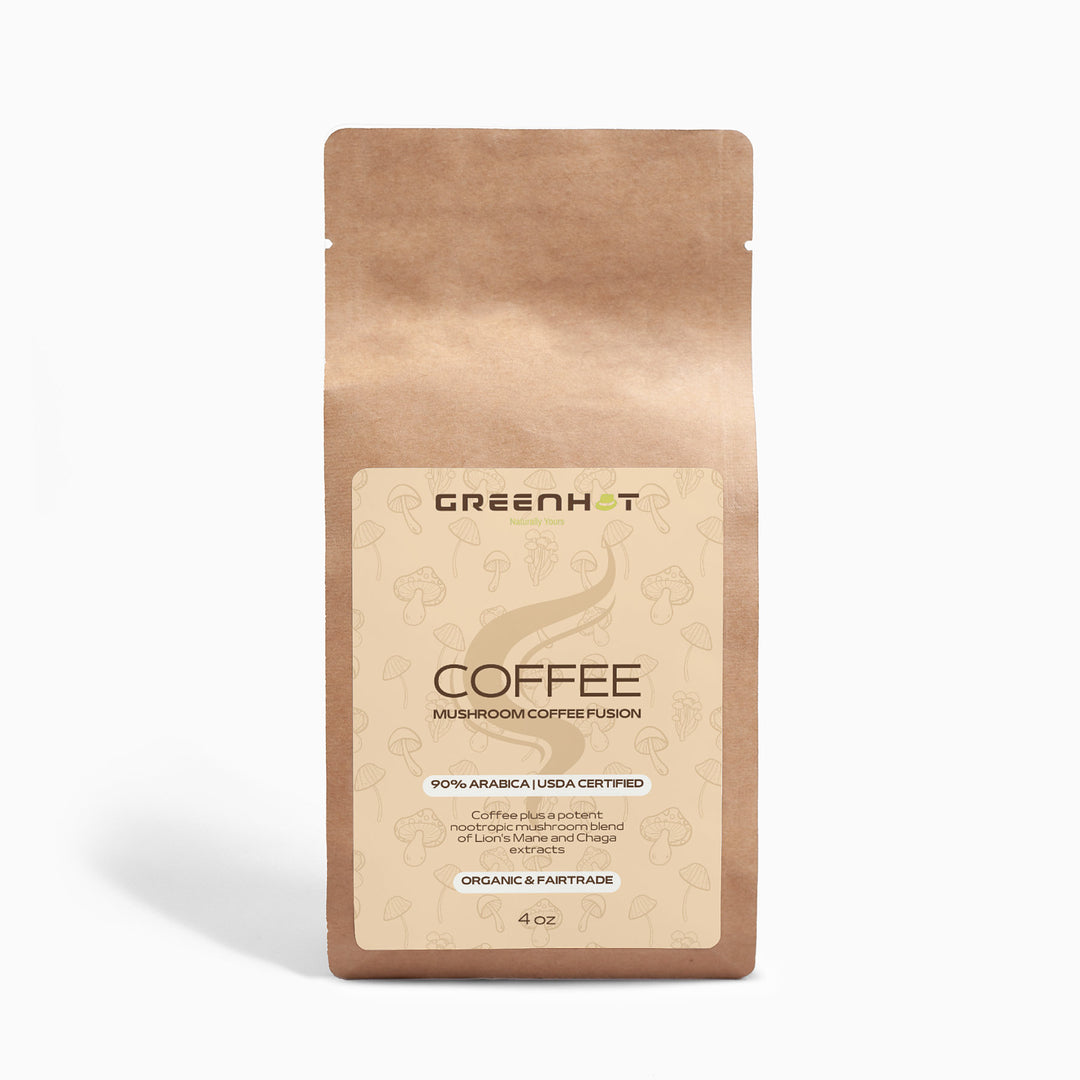
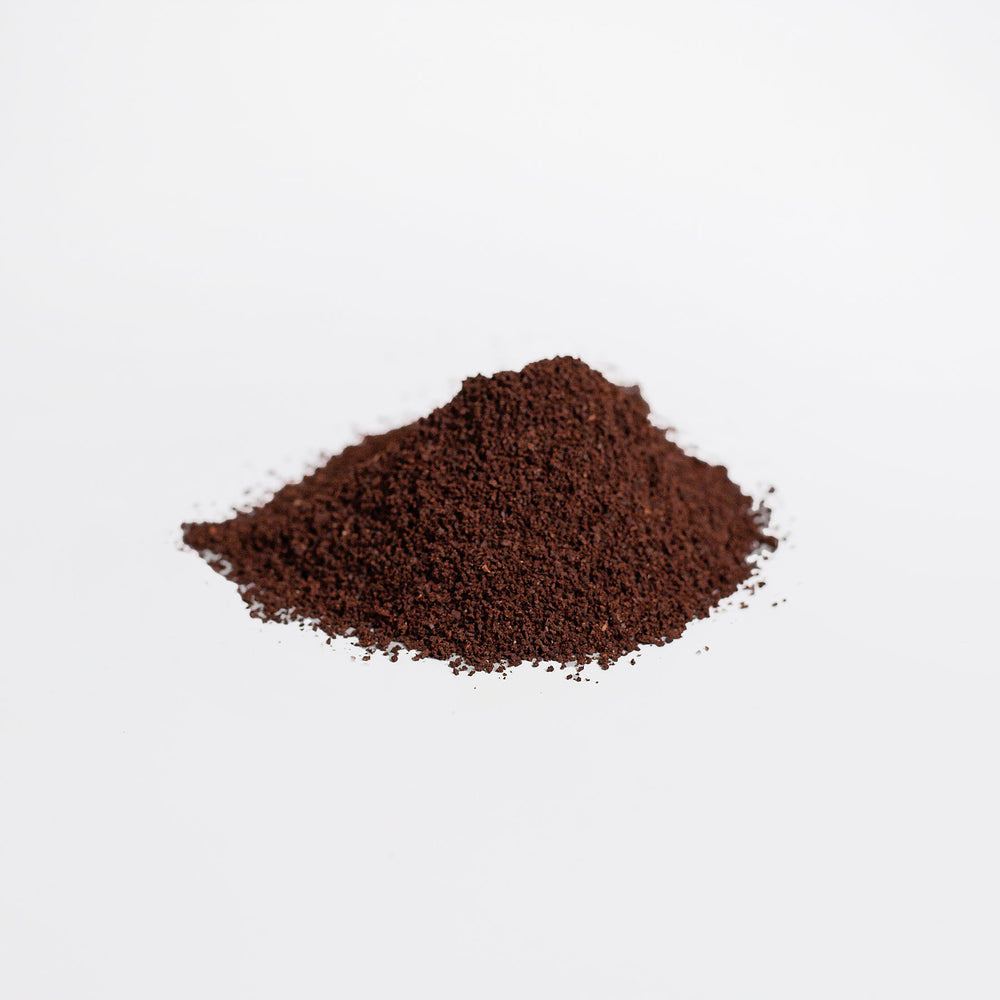
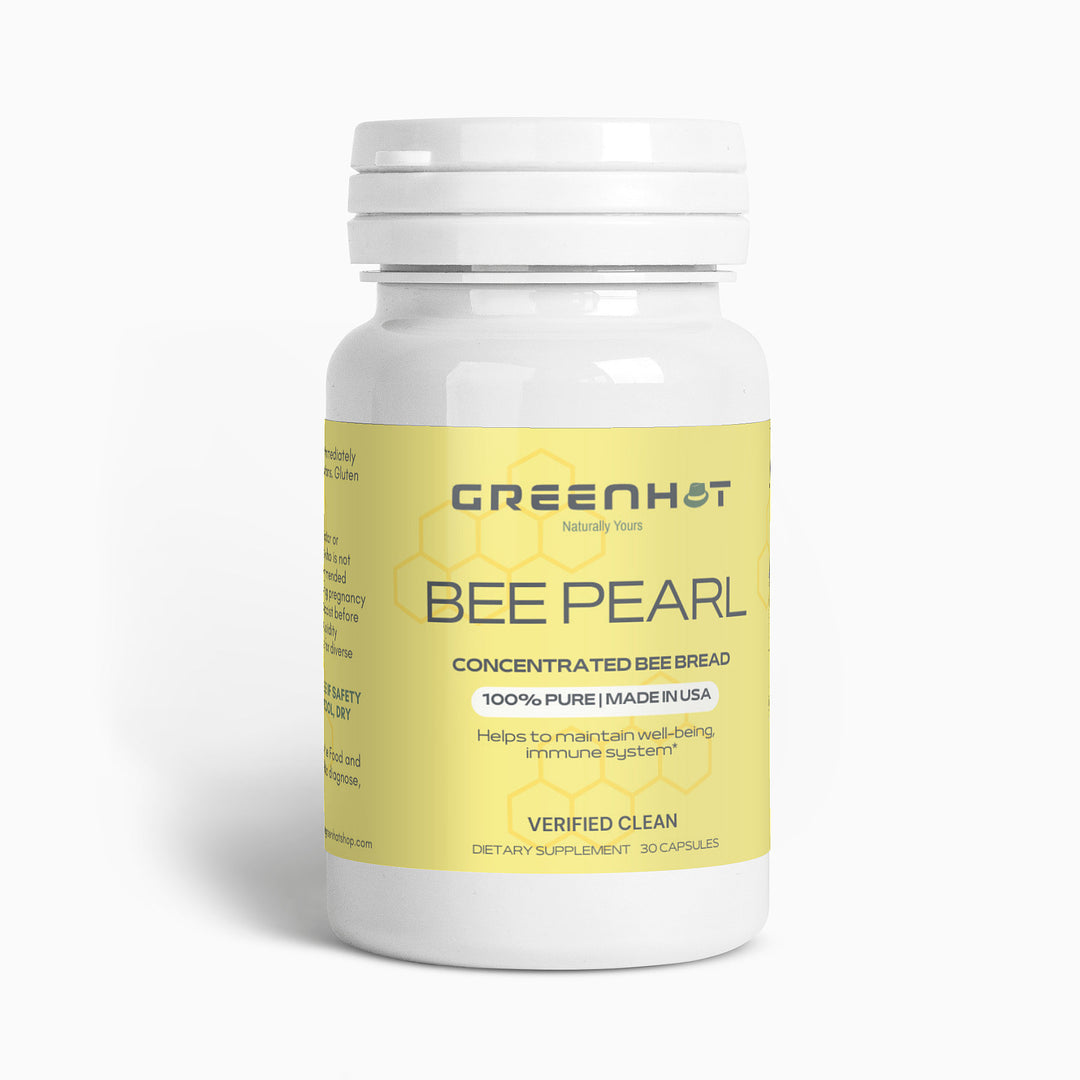
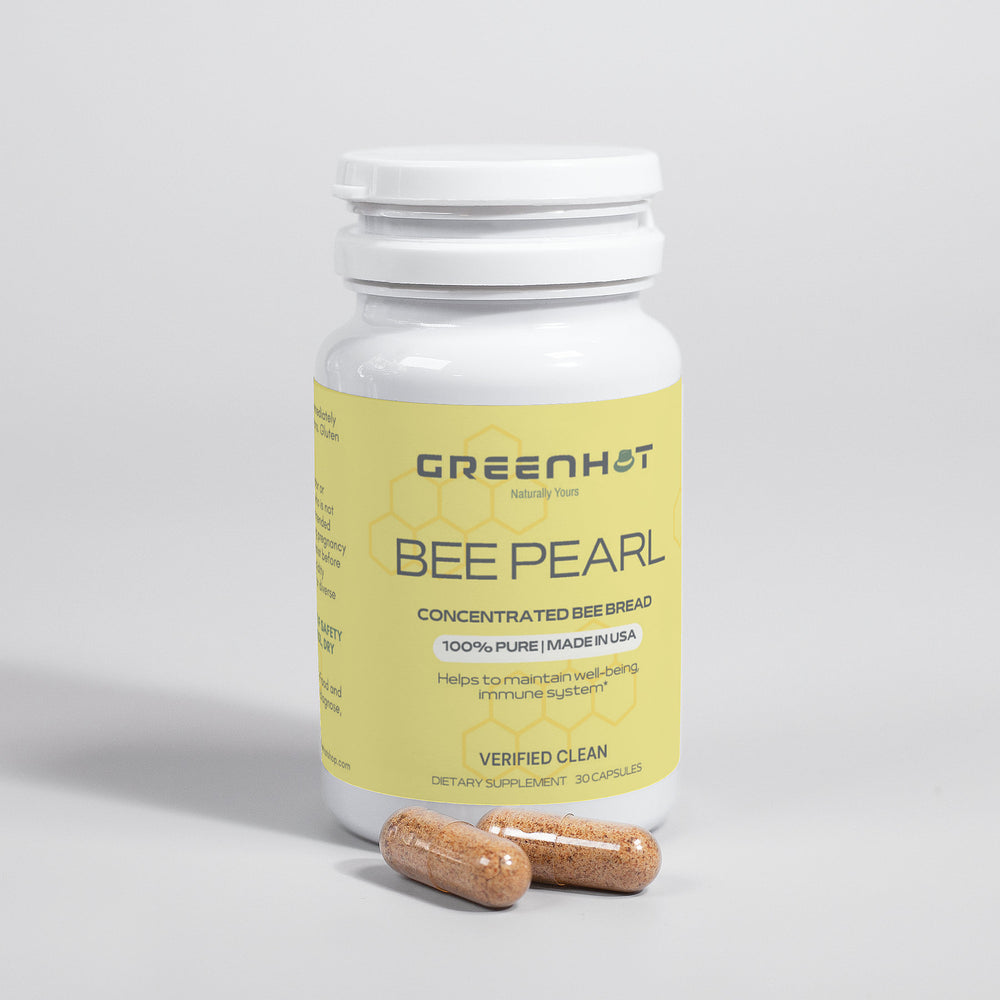
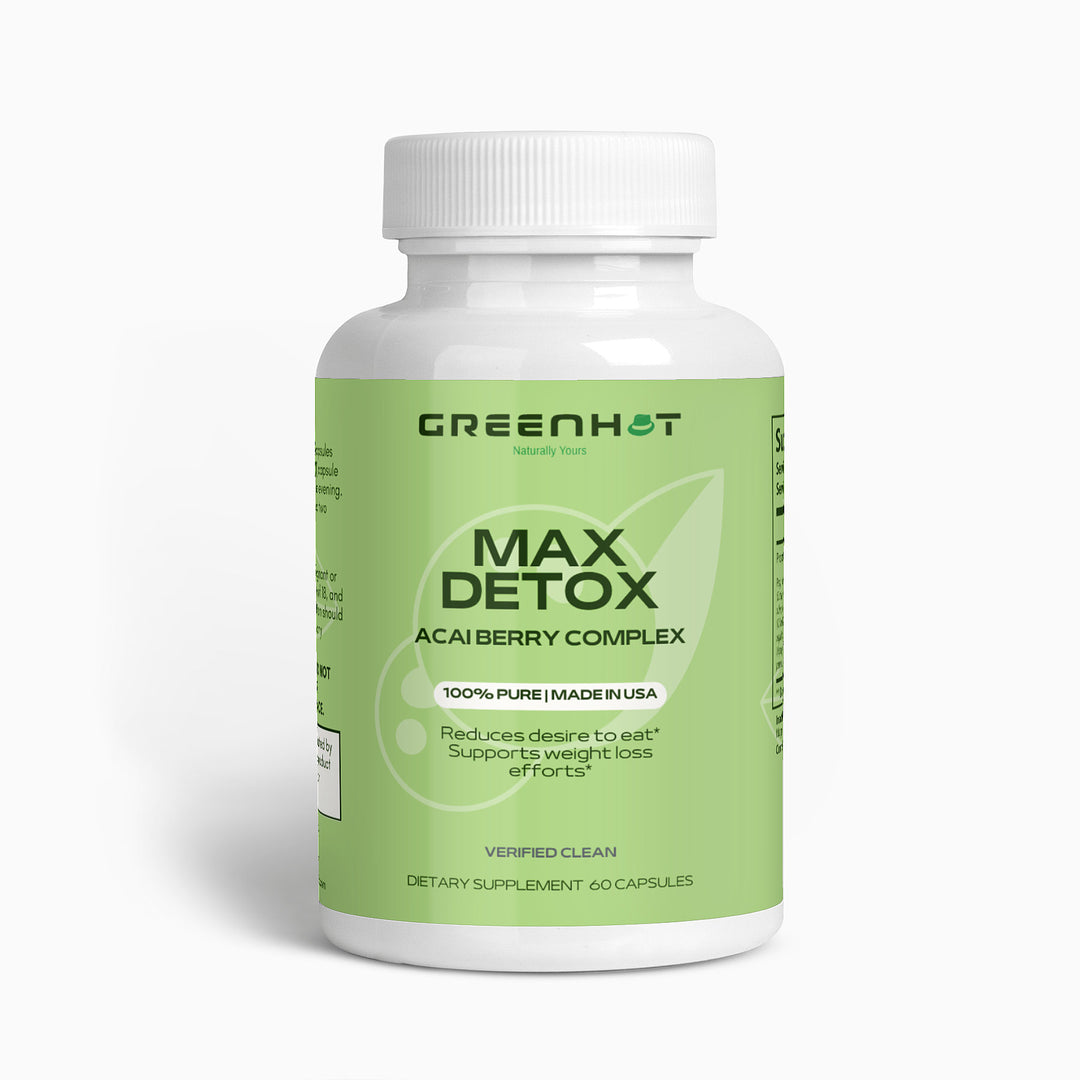
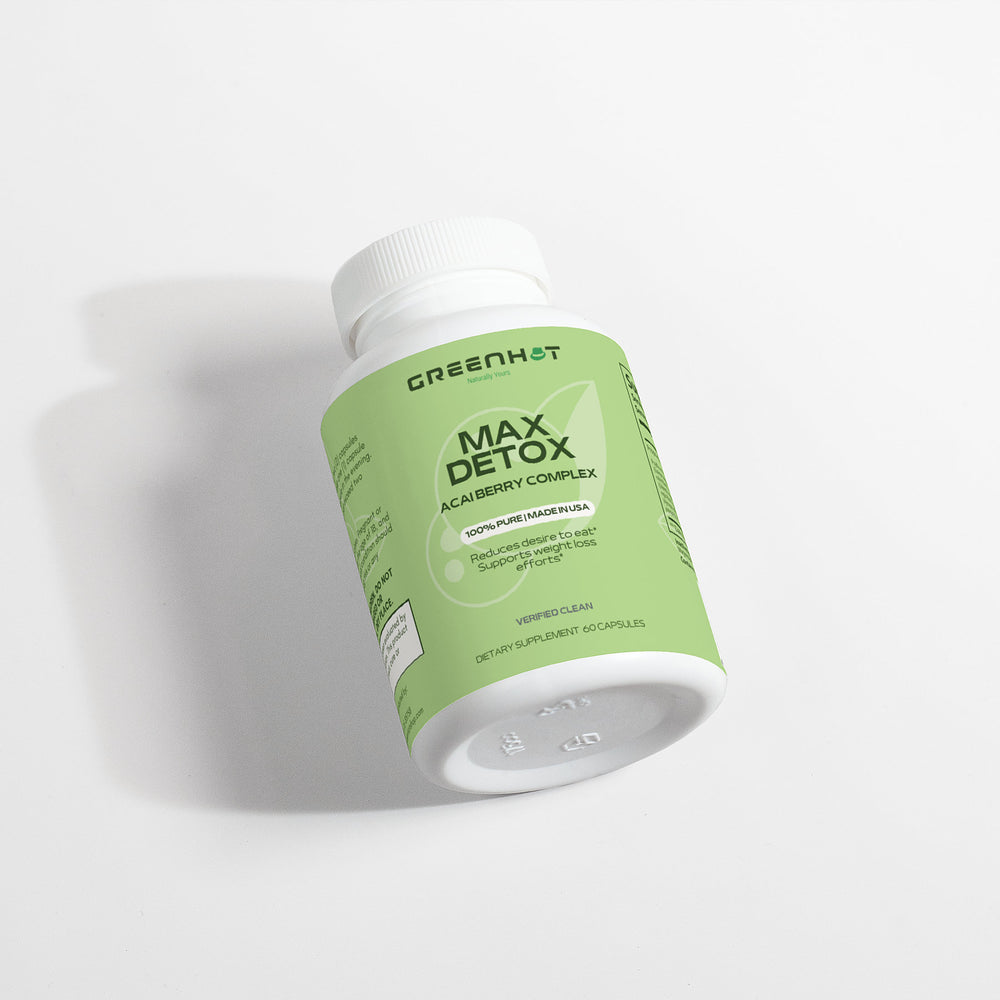
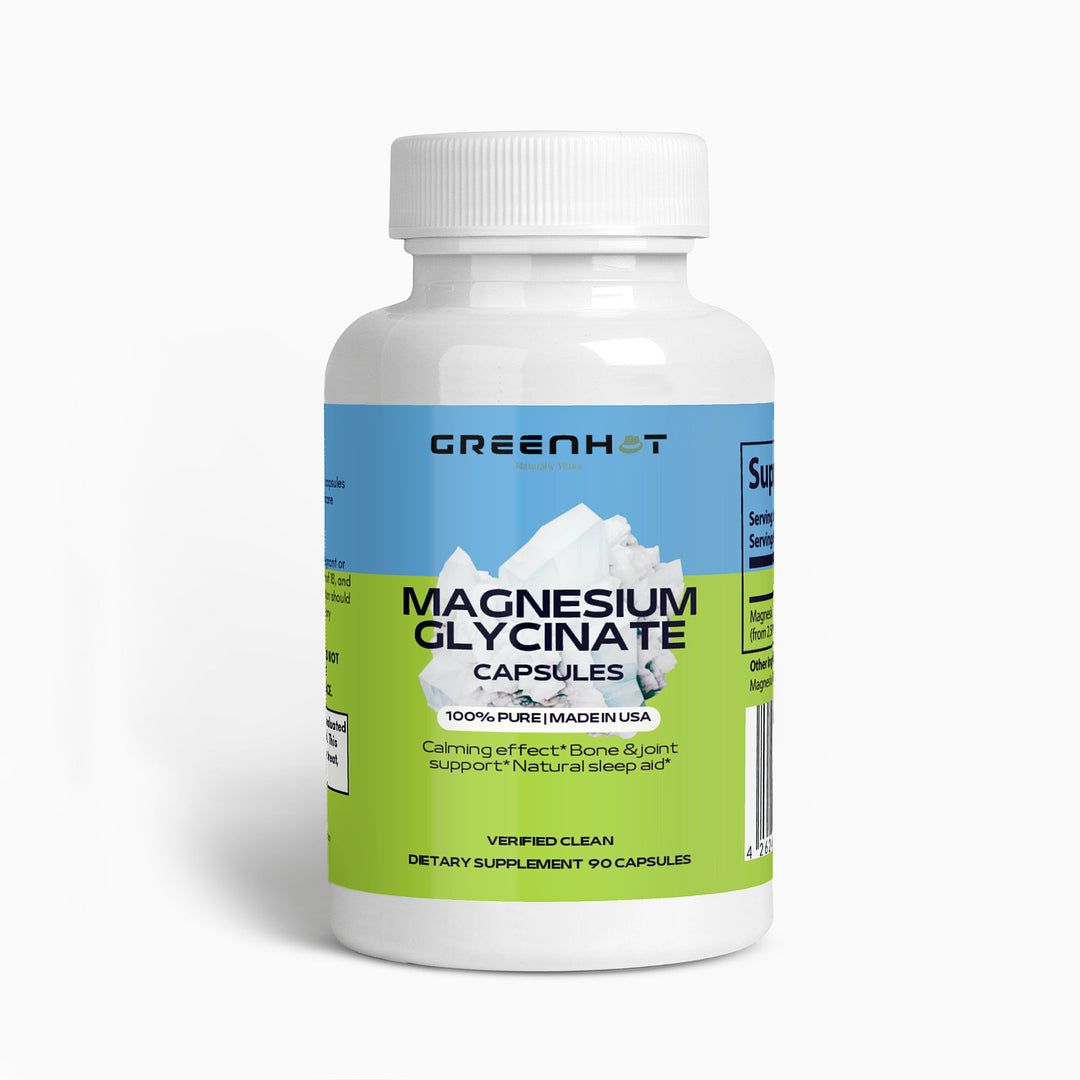
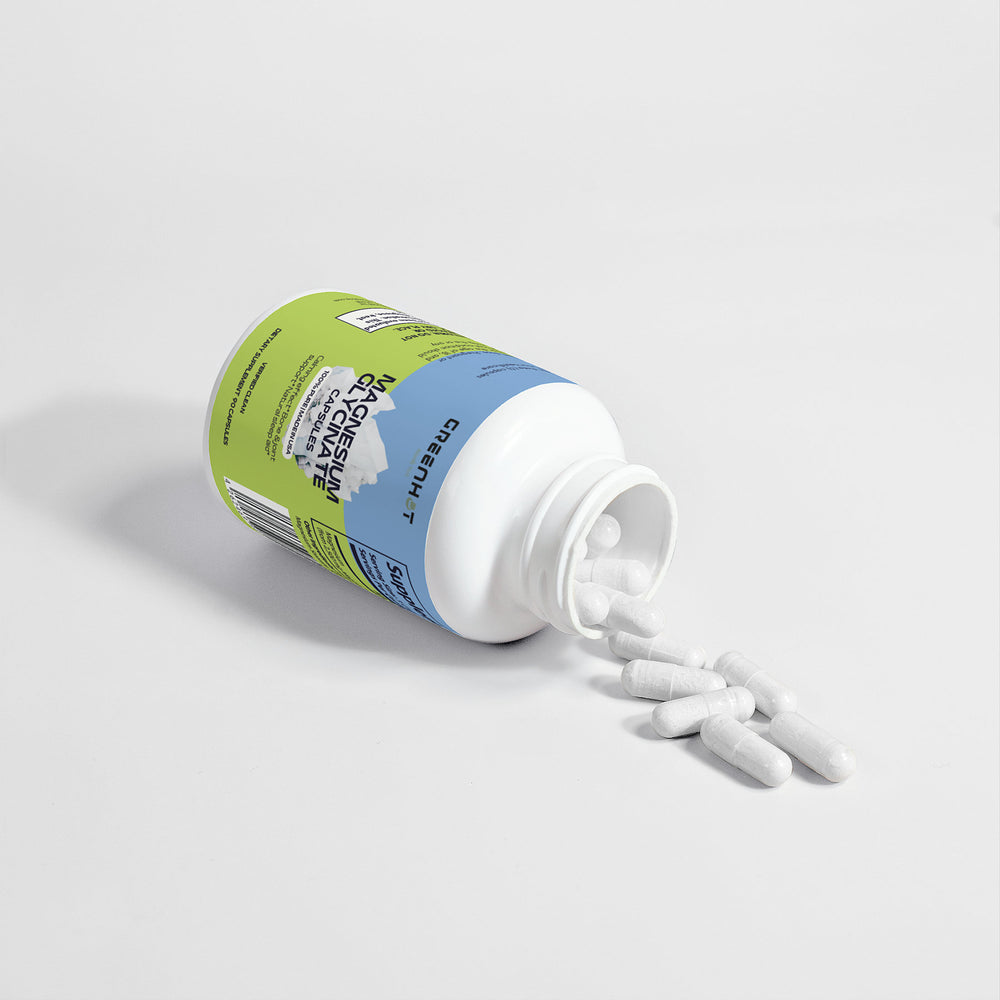

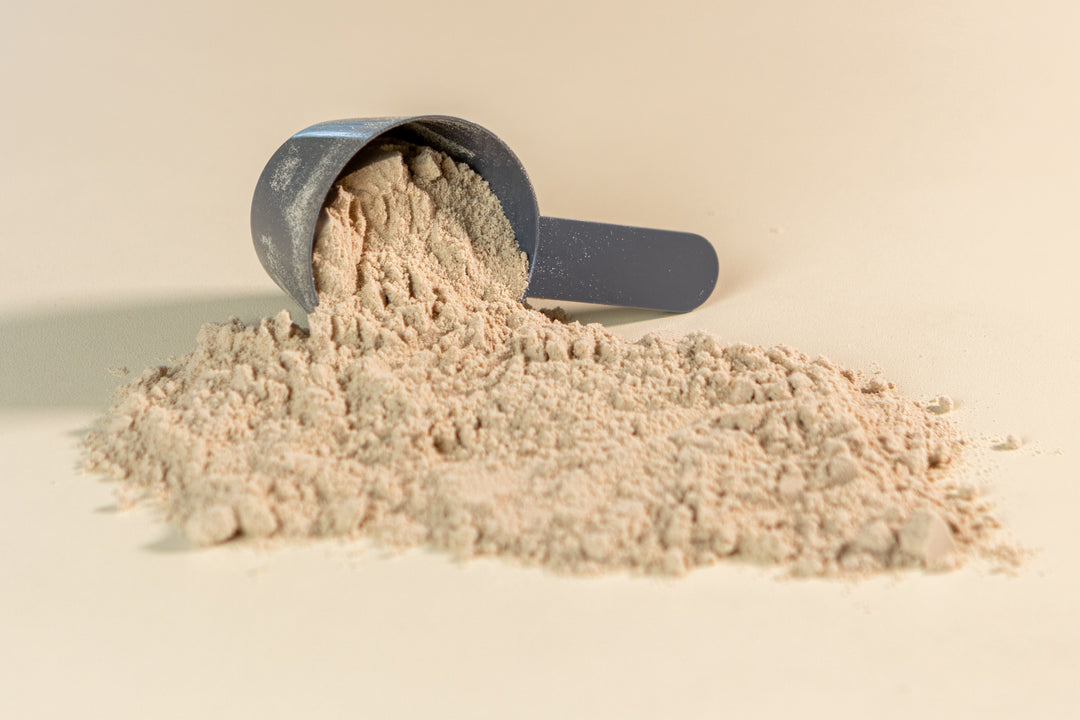
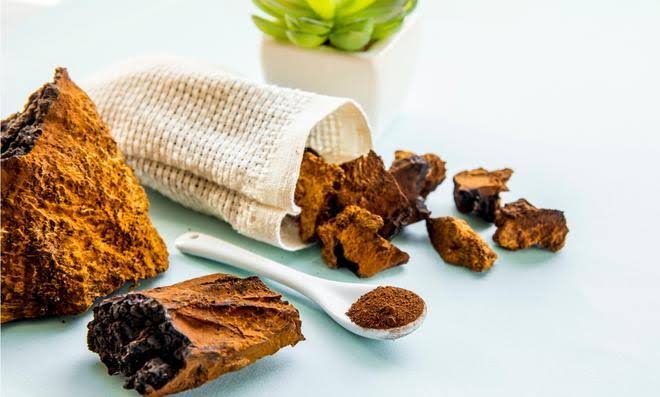






Leave a comment